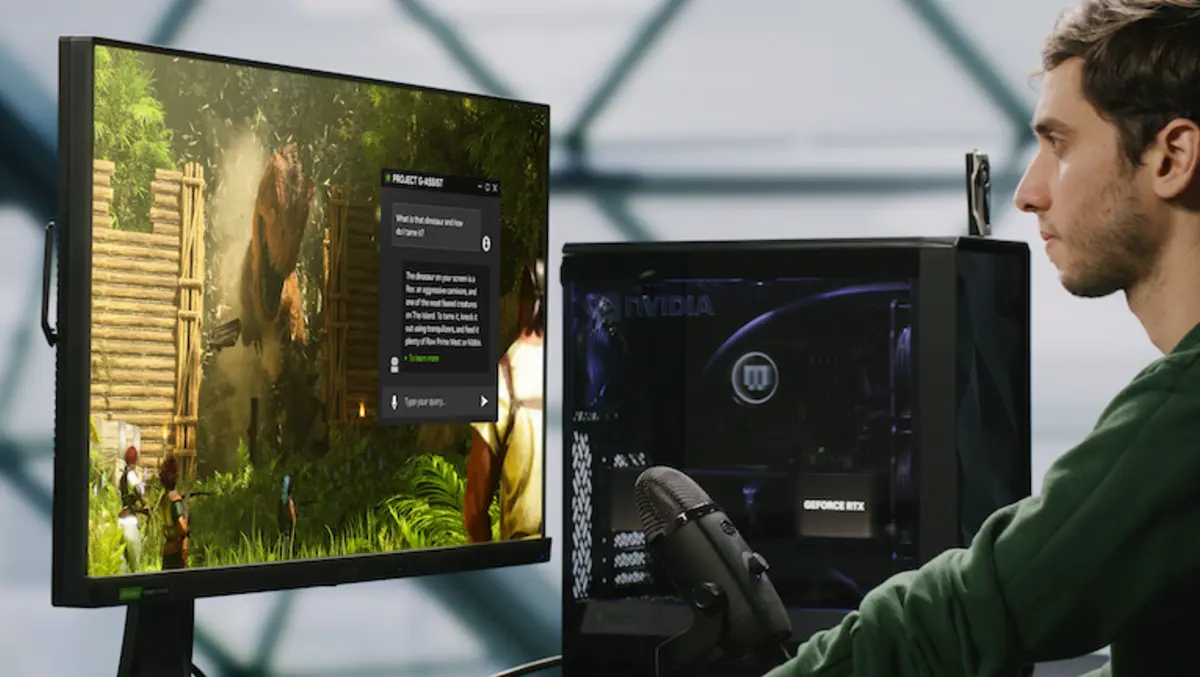NVIDIA has announced an array of new technologies at Computex 2024, aiming to advance AI assistants and digital human experiences. The company introduced new RTX technology, which will power these innovations on new GeForce RTX AI laptops.
The centrepiece of the presentation was Project G-Assist, an AI assistant technology designed to enhance gaming and application experiences. Leveraging generative AI, Project G-Assist aims to provide context-aware assistance to users. The technology was showcased through a demo integrated with the game ARK: Survival Ascended, developed by Studio Wildcard. The AI can answer questions related to game mechanics, lore, and system optimisation by analysing contextual data from the game screen and generating tailored responses.
Additionally, NVIDIA introduced NVIDIA ACE NIM inference microservices, the first PC-based technology to support complex interactions and functionalities for digital humans. Utilising the NVIDIA ACE digital human platform, these microservices streamline the deployment process for developers, enabling high-quality inferences such as natural language understanding, speech synthesis, and facial animation directly on user devices.
In collaboration with companies such as ASUS and MSI, NVIDIA also unveiled new RTX AI PC laptops equipped with GeForce RTX 4070 GPUs. These laptops integrate Windows 11 AI capabilities and are set to receive a free update to Microsoft's Copilot+ PC experiences. NVIDIA's Vice President of Consumer AI, Jason Paul, noted that the introduction of RTX Tensor Core GPUs and NVIDIA DLSS in 2018 marked the start of the AI PC era. The recent announcements are set to unlock new AI-powered experiences for over 100 million RTX AI PC users.
NVIDIA also highlighted the NVIDIA RTX AI Toolkit, a suite of tools designed to assist developers in optimising and deploying large generative AI models on Windows PCs. These tools will be available for broader developer access later this month. The Toolkit includes open-source QLoRa tools for model customisation and the NVIDIA TensorRT model optimizer, which enhances model efficiency by consuming less RAM and delivering faster performance.
Moreover, NVIDIA's collaboration with Microsoft brings GPU-accelerated small language models (SLMs) to the Windows Copilot Runtime. This initiative aims to provide developers with easy API access to tools that enable content summarisation, generation, and task automation with retrieval-augmented generation (RAG) capabilities. By accelerating these AI capabilities with RTX GPUs, NVIDIA promises users a more responsive and efficient AI experience across Windows applications.
NVIDIA's emphasis on content creation is also prominent. The company announced integrations of RTX AI acceleration in popular creative applications such as Adobe's Photoshop, video editing software DaVinci Resolve by Blackmagic Design, and Wondershare Filmora. Further enhancements to existing tools include the RTX Remix platform for modding classic DirectX 8 and 9 games and adding AI-powered super-resolution features to web browsers like Google Chrome, Microsoft Edge, and Mozilla Firefox.
Continuous development and industry support are evident in NVIDIA's plans to open-source parts of the RTX Remix Toolkit. This move aims to facilitate new and improved modding experiences for game developers and modders and enable the creation of more intricate and visually stunning game remasters.



